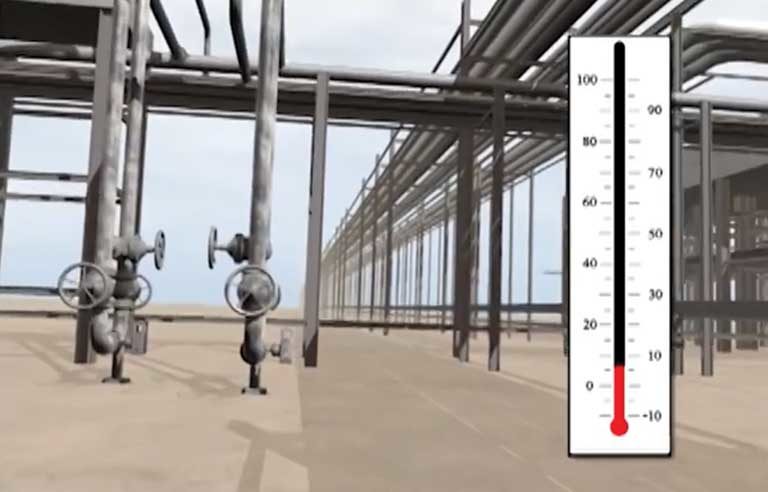New CSB ‘Safety Digest’ and video spotlight winterization safety at chemical, processing facilities

Washington — The Chemical Safety Board is emphasizing the importance of preparing for the “unique safety challenges” posed by cold weather at refineries, chemical plants and other facilities that handle hazardous materials in a new Safety Digest and corresponding video.
“When the temperature drops, the freezing process begins, and materials expand,” CSB states. “This can crack or break pipes and rupture or damage process equipment. This damaged equipment may not become evident until the temperature rises, the ice thaws and a leak develops.”
CSB summarizes three incident investigations in which a total of six workers were killed, and 11 more were injured, to illustrate the dangers of ineffective winterization practices and programs. The incidents occurred in 2014, when a chemical release occurred at a pesticide manufacturing facility in La Porte, TX; in 2007, when a propane fire was sparked at a refinery in Dumas, TX; and in 2001, when a gas condensate fire erupted at a steel mill in Chesterton, IN.
The agency states in the video that it has established key winterization safety lessons that facilities should follow:
- Effectively identify and address the risk of freeze-related hazards to piping and process equipment through process hazard analyses, management of change evaluations, pre-startup safety reviews and operating procedures.
- Create and implement a winterization checklist to ensure plants and process systems are ready for cold weather.
- Establish a formal, written freeze protection program.
- Survey piping systems for dead-legs and ensure they are properly isolated, removed or winterized.
- Systematically review process units – including infrequently used piping and equipment – to identify and mitigate freezing hazards.
Post a comment to this article
Safety+Health welcomes comments that promote respectful dialogue. Please stay on topic. Comments that contain personal attacks, profanity or abusive language – or those aggressively promoting products or services – will be removed. We reserve the right to determine which comments violate our comment policy. (Anonymous comments are welcome; merely skip the “name” field in the comment box. An email address is required but will not be included with your comment.)

